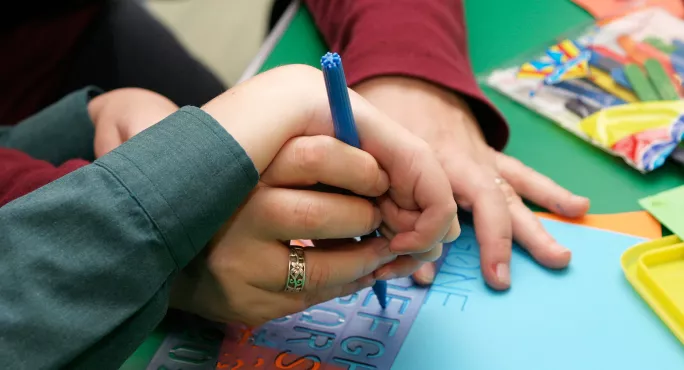Why every ITT trainee should have to go to special school or AP

When I did my PGCE 20 years ago, I felt that we received great teaching and that we were given the best possible chance to succeed as new and eager teachers entering the profession.
Indeed, I have been in the sector ever since and have enjoyed the work. However, over time I have come to realise that one particular aspect was sorely missing from my teacher training - how to effectively support the learning and progress of students with special educational needs and disabilities (SEND).
As someone who has moved into working as a science teacher and senior leader at a special school in London, I am more convinced than ever that this is something all new teachers should have to focus on during initial teacher training (ITT).
Teacher training: a lack of focus on SEND
However, at present the Department for Education’s guidance for ITT simply states that training “may take place in a special school or in a pupil referral unit (PRU), particularly where a provider chooses to offer an additional specialism in special educational needs”.
It is surprising to me that this is only something that is offered as a suggestion for those looking to specialise in this area.
After all, we know it is highly likely that teachers will work with pupils with SEND, as more children are being identified as requiring support.
- ITT: What I wish I’d learned about SEND in teacher training
- SEND support: How to take a whole-school approach
- Teacher training: Teaching applications even lower than last year
For example, based on the January 2022 census data, the number of pupils with special educational needs (SEN) increased to 1.49 million in 2022 (the fifth year in a row the figure had risen), representing 16.5 per cent of all pupils.
What’s more, of all pupils in England in January 2022:
- 12.6 per cent received SEN support (up from 12.2 per cent in 2021).
- 4.0 per cent had an education, health and care plan (EHCP). This was an increase from 3.7 per cent in 2021.
Furthermore, when we look into the types of need reported by the DfE, speech, language and communication needs were the most common primary type of need for those with SEN support, accounting for 262,400 pupils (25.1 per cent). Autism spectrum disorder (ASD) was the most common primary type of need for pupils with an EHCP, at 31.3 per cent.
Teachers left to struggle
Clearly then, many teachers will work with pupils requiring additional support in a raft of complex areas and backed by a variety of financial assistance to do this - or not.
Indeed, over the past few years, I have had teacher friends ask me for advice to support the learning of young people they are working with who have a range of learning needs that require more than just simple differentiation.
They remind me of my own struggles when I was in the state sector and keenly aware of my lack of expertise as I struggled to adapt my lessons for students with, for example, ASD, dyspraxia or developmental language disorder.
In fact, it was this constant sense of letting down these students that led me to decide that I would refocus my career to work in a special school and develop meaningful strategies and teaching expertise to truly help pupils with SEND.
It was not an easy transition and involved much trial and error and support from my new, more experienced colleagues. But I can now say that I feel more confident in delivering the sort of education the pupils deserve.
Why are all teachers not trained for this?
But throughout my transition, I could not help but reflect on why it was that I had received so little opportunity to learn this on my own ITT placement two decades before. And I found even more surprising that teacher training was still so lacking in this area.
This is why, if it were down to me, I would change the ITT programme to make it mandatory for every trainee teacher to spend some of their teaching practice within a special school or alternative provision setting.
Time spent training in special/alternative provision settings would provide an important foundation for all trainees to gain first-hand experience in supporting the learning of students with a wide range of educational needs.
This would not only help special schools or alternative-provision settings by increasing the number of teachers with the skills required for their settings but also the mainstream schools, where, as noted, the need in this area is rising all the time.
It would also help to dispel some of the assumptions linked to perceived low ability of students with additional learning needs and ensure that more teachers understand these children can achieve - and how to support them to do so.
Bukky Yusuf is a science lead and senior leader at Edith Kay School in north-west London
You need a Tes subscription to read this article
Subscribe now to read this article and get other subscriber-only content:
- Unlimited access to all Tes magazine content
- Exclusive subscriber-only stories
- Award-winning email newsletters
Already a subscriber? Log in
You need a subscription to read this article
Subscribe now to read this article and get other subscriber-only content, including:
- Unlimited access to all Tes magazine content
- Exclusive subscriber-only stories
- Award-winning email newsletters
topics in this article



